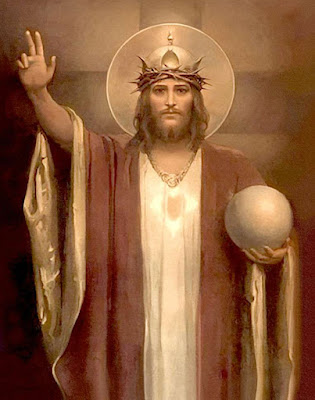Homily for the First Sunday of Advent, November 27, 2022. Gospel of St. Matthew 24:37-44. Theme: Learning God’s Story From the Advent Wreath
Well, here we are at Advent once again, ushering in the Christmas holiday season that is always so special in everyone’s heart. You know, so many of our holiday customs like Christmas trees, lights and carols began centuries ago when the vast majority of people were illiterate. And so creative ways of passing on the story of the coming of Christ were designed that made it easy for people to remember.
Among the most common of these is the Advent Wreath which can be found in churches and homes throughout the world at this time of year. Its evergreen branches symbolize eternal life while its circular shape proclaims the awesome mystery of God who has no beginning or end. The candles speak to us of the passing of time because each one of them represents a particular phase in the history of the world. They are intentionally lit gradually, week-by-week, so as to visually emphasize that God's revelation of himself and intervention into our world was an unfolding process. Even the colors of the candles deliver a message. Purple is the liturgy’s color of preparation, while pink is its color of rejoicing. So, the Wreath tells us that we are preparing for something that will bring us tidings of comfort and joy.
The first purple candle represents the genesis of humanity which began with the Creation of Adam and Eve. When we light it we call to mind the promise God made to them in the Garden of Eden. After having turned away from their Creator by disobedience, they repented and in turn God promised to send a Redeemer who would undo what they had done. Through perfect love and obedience, this Savior, called the Messiah (in Hebrew) or the Christ (in Greek), would lead the human race back to God. And so, this first candle of the Wreath invites us to become part of the solution to sin by preparing our hearts and lives to welcome and follow Jesus, the Promised One.
The second candle represents the next phase of salvation history that we call the Old Testament. During this 4,000-year period, God built up and guided his people Israel through such leaders as Abraham, Moses and King David. He sent prophets who kept the promise of a Messiah alive in the minds and hearts of the people especially when they were going through difficulties and suffering. This candle calls us to never forget that, no matter how things may seem in our lives, God is a Father who always keeps His promises and who often delivers even more than we can hope for or imagine.
The third candle stands out from among the rest. Its pink color symbolizes joy and since we light it on the Third Sunday of Advent, we call that day, “Gaudete” or “Rejoicing” Sunday. It proclaims the fulfillment of God’s promise and represents the era of the New Testament that began with the Blessed Virgin Mary’s “yes” to God’s invitation to become the Mother of his Son. This third candle invites us to turn to Our Lady whom we call “Cause of our Joy”, asking her to bring us to Jesus and to help us prepare our hearts for his coming into our lives.
Finally, we come to the fourth candle and we return to the color purple. This last candle symbolizes the final era of humanity, from the present day until that time when Jesus returns in glory to planet Earth. It calls us to look forward to that Last Day when good will triumph over evil forever, once and for all. It will usher in an eternity in which there will be no more suffering, no more struggles and no more tears among God’s people.
So, as we can see, every year the Advent Wreath invites us to become part of God’s story of salvation. As the days of Advent lead us to Christmas, we are called to take a good honest look at ourselves - at who we are and at how we are living - and open our hearts to the transforming presence of the Messiah, the Promised One, the Prince of Peace who comes to give deep meaning and purpose to each one of our lives.




